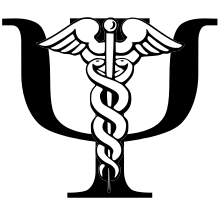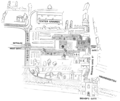The Psychiatry Portal Psychiatry is the medical specialty devoted to the diagnosis, prevention, and treatment of deleterious mental conditions. These include various matters related to mood, behaviour, cognition, perceptions, and emotions. Initial psychiatric assessment of a person begins with creating a case history and conducting a mental status examination. Physical examinations, psychological tests, and laboratory tests may be conducted. On occasion, neuroimaging or other neurophysiological studies are performed. Mental disorders are diagnosed in accordance with diagnostic manuals such as the International Classification of Diseases (ICD), edited by the World Health Organization (WHO), and the Diagnostic and Statistical Manual of Mental Disorders (DSM), published by the American Psychiatric Association (APA). The fifth edition of the DSM (DSM-5), published in May 2013, reorganized the categories of disorders and added newer information and insights consistent with current research. Treatment may include psychotropics (psychiatric medicines), interventional approaches and psychotherapy, and also other modalities such as assertive community treatment, community reinforcement, substance-abuse treatment, and supported employment. Treatment may be delivered on an inpatient or outpatient basis, depending on the severity of functional impairment or risk to the individual or community. Research within psychiatry is conducted on an interdisciplinary basis with other professionals, such as epidemiologists, nurses, social workers, occupational therapists, and clinical psychologists. (Full article...) Selected articleGender identity disorder (GID) or gender dysphoria is the formal diagnosis used by psychologists and physicians to describe people who experience significant dysphoria (discontent) with the sex they were assigned at birth and/or the gender roles associated with that sex. Evidence suggests that people who identify with a gender different from the one they were assigned at birth may do so not just due to psychological or behavioral causes, but also biological ones related to their genetics, the makeup of their brains, or prenatal exposure to hormones. Estimates of the prevalence of gender identity disorder range from a lower bound of 1:2000 (or about 0.05%) in the Netherlands and Belgium to 1.2% in New Zealand. Research indicates people who transition in adulthood are up to three times more likely to be male assigned at birth, but that among people transitioning in childhood the sex ratio is close to 1:1. Gender identity disorder is classified as a medical disorder by the ICD-10 CM and DSM-5 (called gender dysphoria). Many transgender people and researchers support declassification of GID because they say the diagnosis pathologizes gender variance, reinforces the binary model of gender, and can result in stigmatization of transgender individuals. The official classification of gender dysphoria as a disorder in the DSM-5 may help resolve some of these issues, because the term "gender dysphoria" applies only to the discontent experienced by some persons resulting from gender identity issues. The current medical approach to treatment for persons diagnosed with gender identity disorder is to support the individual in physically modifying the body to better match the psychological gender identity. This approach is based on the concept that their experience is based in a medical problem correctable by various forms of medical intervention. (Full article...) Selected image A human skull mapped according to phrenology (1883), early precursor to modern psychiatry and neuroscience, now considered a pseudoscience image credit: public domain
WikiProjectsSelected biography Rush signed the Declaration of Independence and attended the Continental Congress. He served as Surgeon General in the Continental army, and was blamed for criticising George Washington. Later in life, Rush became a professor of chemistry, medical theory, and clinical practice at the University of Pennsylvania. As a leading physician, Rush had a major impact on the emerging medical profession. As an Enlightenment intellectual, he was committed to organizing all medical knowledge around explanatory theories, rather than rely on empirical methods. Rush argued that illness was the result of imbalances in the body's physical system and was caused by malfunctions in the brain. His approach prepared the way for later medical research, but Rush himself undertook none of it. He promoted public health by advocating clean environment and stressing the importance of personal and military hygiene. His study of mental disorder made him one of the founders of American psychiatry. (Full article...) General imagesThe following are images from various psychiatry-related articles on Wikipedia.
Related portalsTopicsSubcategoriesAssociated WikimediaThe following Wikimedia Foundation sister projects provide more on this subject:
Discover Wikipedia using portals |
































